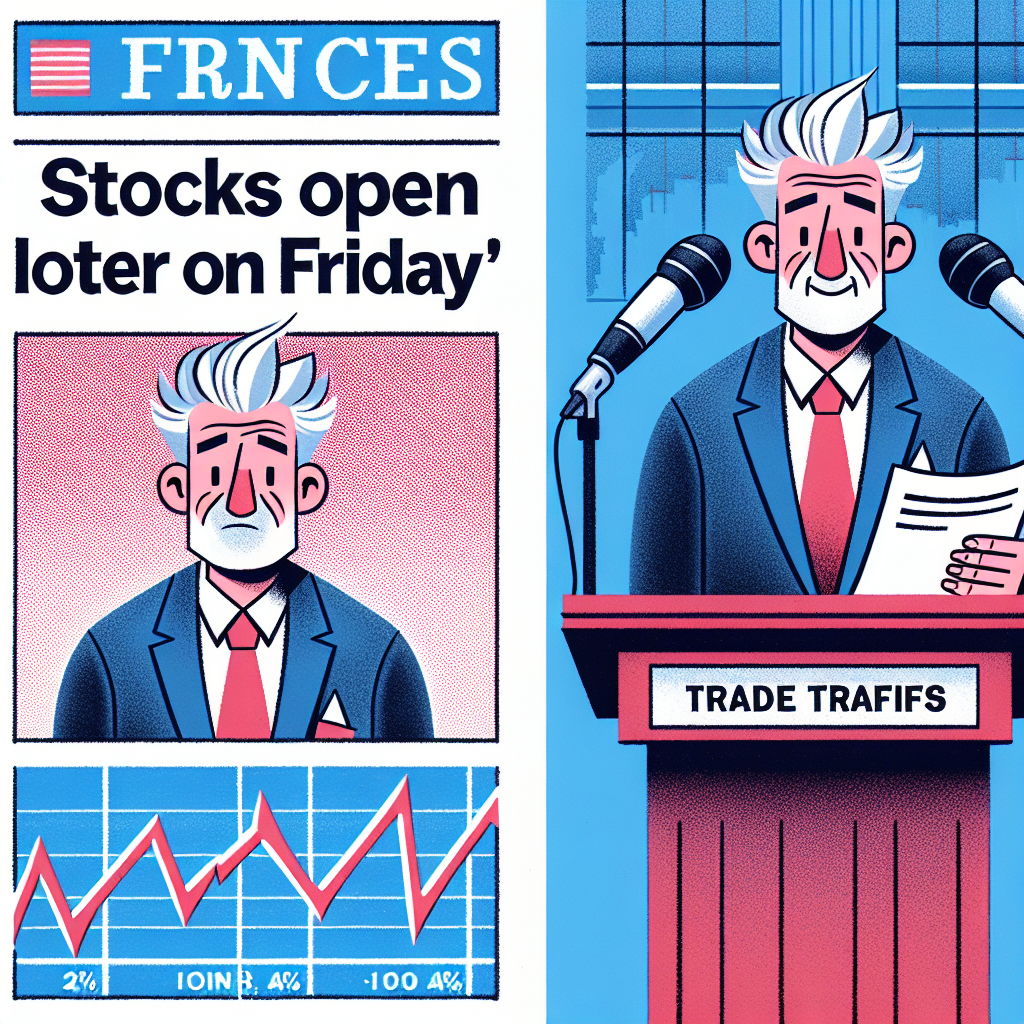Wall Street Reacts to New Tariff Threats
After a relatively calm stretch, markets turned sharply lower on Friday as investors reacted to renewed geopolitical and trade tensions. The big trigger? Comments from former President Donald Trump discussing potential new tariffs—comments that immediately sent ripples through equities, particularly among multinational and tech-heavy companies.
What Prompted the Market Selloff?
On Friday morning, U.S. stocks plummeted following Trump’s announcement that he would consider imposing a 25% tariff on Apple’s iPhone imports and up to a 50% tariff on goods from the European Union if reelected. The statement reignited longstanding fears of trade wars and supply chain disruptions—concerns that have haunted markets dating back to Trump’s first term in office.
Immediate Market Impact
The reaction from Wall Street was swift:
- Dow Jones Industrial Average: Dropped by nearly 400 points, or 0.9%.
- S&P 500: Fell around 1% as broad-based selling took hold.
- Nasdaq Composite: Experienced a 1% decline, highlighting investor unease in the tech sector.
This broad pullback underscores just how sensitive markets remain to trade policy, particularly when it comes to U.S.-China and U.S.-EU relations.
Tech Sector Takes a Direct Hit
Given the specific mention of Apple, the tech sector was among the hardest hit.
- Apple Inc. (AAPL): As a global titan in the smartphone industry, Apple saw its stock price fall significantly during early trading hours. A 25% tariff on iPhones would not only increase costs for consumers but could prompt supply chain reshuffling and relocation of manufacturing out of China.
- Semiconductor firms: A renewed trade war could impact companies like AMD, Nvidia, and Intel, all of whom rely heavily on global supply chains and components sourced or manufactured overseas.
EU Trade Relations Also in Focus
Trump’s threat of a 50% tariff on European Union products comes amid growing tensions over trade imbalances and regulatory disagreements. Such a move could severely impact sectors including:
- Automobiles: German automakers such as BMW, Volkswagen, and Mercedes-Benz could face steep new costs on exports to the U.S.
- Luxury goods and wines: French and Italian exporters may see demand fall if tariffs drive up prices for American consumers.
Investor Sentiment and Future Outlook
The specter of fresh tariffs has created a defense-first mentality among investors, highlighting continued uncertainty in a high-stakes presidential election year. Markets have generally favored stability, particularly when corporate profits are on the line.
What Are Analysts Saying?
Market analysts are weighing the potential ripple effects:
- “Investors are spooked.” – An analyst from a leading Wall Street firm noted that unexpected reintroductions of trade tensions could stall momentum and raise doubts over earnings projections for multinational corporations.
- “Geopolitical headlines always carry weight.” – With economic fundamentals strong, traders are focusing on the risks posed by policy changes, especially in areas like taxation and trade.
Is This a Temporary Pullback or Start of a Wider Trend?
For now, the market remains resilient, but such tariff talk revives memories of past volatility during the height of the U.S.-China trade dispute. Whether this is a brief reaction or the beginning of a broader retracement remains to be seen, but traders should stay alert for:
- Future comments from political figures that could either escalate or calm tensions.
- Corporate earnings reports that reflect potential tariff impacts on cost structures and margins.
- International retaliation in the form of reciprocal tariffs or legal action through the World Trade Organization (WTO).
Conclusion: A Warning Shot for the Market?
Friday’s drop served as a stark reminder that the stock market is never fully insulated from political rhetoric and economic nationalism. The revival of Trump-era tariff talk has once again thrust trade policy into the spotlight, injecting fresh volatility to an otherwise positive stretch for equities in recent months.
Investors should prepare for a potentially turbulent ride ahead, especially as election discourse begins to heat up. For now, caution appears to be the dominant sentiment on Wall Street.



Leave a Reply